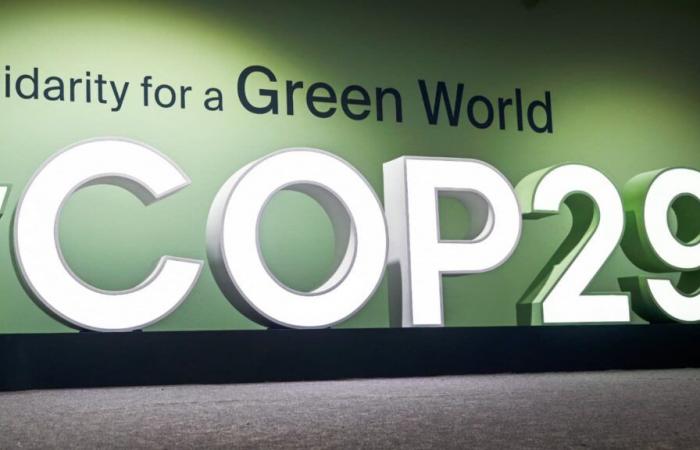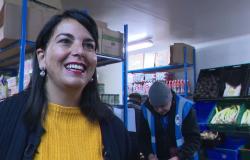Small island states lamented “the lack of willingness to respond to the needs of vulnerable developing countries” while Azerbaijan's handling of the event was also heavily criticized.
Advances widely criticized. Three hundred billion dollars per year, in ten years: developed countries pledged on Sunday, November 24 in Baku to finance more poor countries threatened by climate change, at the end of a chaotic COP29 conference in Azerbaijan including the developing world leaves disappointed.
The funding promised for 2035 “is too weak, too late and too ambiguous”, regretted Kenyan Ali Mohamed, speaking on behalf of the African group. His counterpart from Malawi, representing the 45 poorest countries on the planet, Evans Njewa, denounced an “unambitious” agreement.
“The amount proposed is pitifully low. It is derisory,” denounced Indian delegate Chandni Raina, criticizing the Azerbaijani presidency of COP29.
“Lack of will”
This financial commitment from European countries, the United States, Canada, Australia, Japan and New Zealand, under the auspices of the UN, is to increase from 100 billion today to ” at least 300 billion dollars” annually by 2035 their loans and donations to developing countries.
Money to adapt to floods, heatwaves and droughts. But also to invest in low-carbon energies instead of developing their economies by burning coal and oil, as Western countries have done for more than a century.
The small island states deplored “the lack of will to respond to the needs of vulnerable developing countries”, through the voice of Samoan Cedric Schuster, once again disappointed with a multilateral process to which he nevertheless said he was attached.
Westerners, including the Europeans, the world's leading donors of climate finance, were not ready to go beyond this amount, in a period of budgetary tightening and political upheaval. But believe they have contributed to a historic result.
The European commissioner in charge of climate negotiations, Wopke Hoekstra, expressed regret: Europeans would have “liked to see more ambition” on the reduction of greenhouse gases in all countries. Postponing this debate until next year “is a failure”, said Kévin Magron, French ambassador for the climate.
“Mountain of work”
But the COP29 agreement, sealed during the second night of extension of a conference that began on November 11, leaves a bitter taste for many participants. The poorest countries on the planet and the islands of the Pacific, Caribbean and Africa asked for double or more. And he was adopted at almost 3:00 a.m. after exhausting negotiations and twists and turns.
“No country got everything it wanted, and we leave Baku with a mountain of work to do. So now is not the time to declare victory,” said the UN Climate chief, Simon Stiell.
Azerbaijan fought to win the organization of the conference, the largest international event organized by the country, against Armenia. But the declarations of its president against France, the arrests of environmental activists and the harassment of American parliamentarians in Baku have weighed down the atmosphere.
His management of the negotiations is harshly judged. Germany criticized it for its proximity to oil-producing countries, and delegates from dozens of developing countries slammed the door on a meeting on Saturday, saying they had not been fully consulted.
Baku was a “painful experience,” said Marina Silva, the environment minister of Brazil, which will host the next COP in a year. Another hiccup: one of the other texts planned for adoption here, supposed to deepen the exit from fossil fuels launched by COP28 in Dubai, could not be adopted.
Standoff over fossils
The unprecedented background of this 29th COP was a year 2024 which will probably be the hottest ever measured. And, nine years after the Paris agreement, which aims to limit global warming to 1.50°C compared to the pre-industrial era, humanity will burn even more oil, gas and coal than last year.
In two weeks of meetings in Azerbaijan, storms killed the Philippines in Honduras, Spain licked its wounds after deadly floods, Ecuador declared a national emergency because of drought and fires.
The disappointment had been anticipated for several days, which did not mitigate the reactions of NGOs, most of which were very negative.
“The result offers false hope to those already bearing the brunt of climate disasters,” said Harjeet Singh, campaigner for the Fossil Non-Proliferation Treaty Initiative.
The Baku agreement “is not as ambitious as the moment requires”, estimated Laurence Tubiana, architect of the Paris agreement, who nevertheless noted a reason for satisfaction: “multilateralism is alive and more necessary than ever.”






